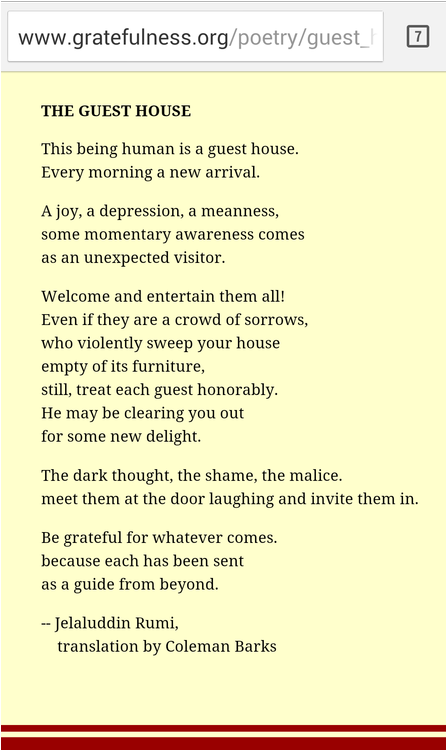It was fitting that we explored Merton's reflections on Trinity only a few days before Trinity Sunday. His writings reveal what most contemporary contemplatives such as Fr. Richard Rohr, Rev. Cynthia Bourgeault and Fr. Thomas Keating teach about the Trinity. All these teachers agree that the Trinity is a circle of relationships between the persons of God and that, through Christ in us, we are all invited to participate in that single flow of Love. At our very centers we are all Christ and we all compose the mystical Body of Christ. In this way, as Merton puts it:
We all become doors and windows through which God shines back into His own house. When the Love of God is able to love you through me and you are able to love God through me.
Merton contends that we will one day live entirely in God (and therefore in the flow of perfect Love) and in one another as the Persons of God live in One another. But until that day our current human experience is that of a Body of Broken Bones:
In the whole world, throughout the whole of history, ... Christ suffers dismemberment... All over the face of the earth the avarice and lust of men breed unceasing divisions among them, and the wounds that tear men from union with one another widen and open out into huge wars, murder, massacres... Christ is massacred in His members, torn limb from limb.
Because of this human condition, our experience of love is imperfect and painful, like the "resetting of a Body of broken bones." Based on this experience, it is difficult for us to understand love and it is the folly of the false self to try to define it. However, as we discussed by example, we can all recognize genuine Love when we experience it. It is in that experience of genuine Love that we come to recognize and experience God.

 RSS Feed
RSS Feed